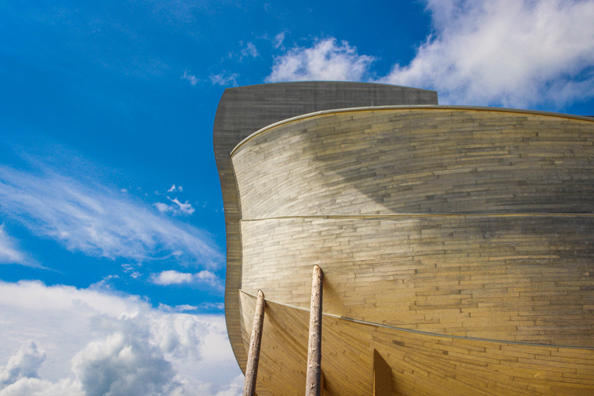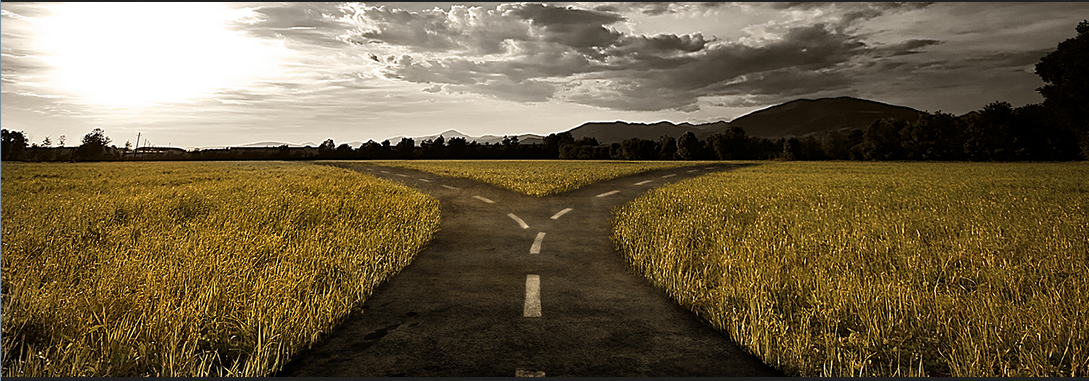|
By Joyce Pelletier
Acts 2:42 They devoted themselves to the apostles’ teaching and to fellowship, to the breaking of bread and to prayer. Recently, I was able to reconnect with an old friend from when we started our journey with Jesus in 1975. Martha and Dan lived less that a half a mile from us. I don’t remember how we first met. I do recall that we had an instant friendship. We attended a Marriage Encounter Weekend as did Martha and Dan. This weekend was a weekend for couples to reconnect with each other by means of letter writing to each other. Maurice and I were so blessed by this weekend’s dynamics. I had just made a commitment to follow Jesus as my personal Lord and Savior. My life started to change so fast and the benefits of living the life with God was amazing to experience what God was doing in our lives. Martha and Dan were part of this experience. We lived in the same neighborhood, they had one daughter at the time and soon they welcomed a new son, Jimmy. They asked us to be Godparents to Jimmy. It was our first encounter for this role. Over the years, we spent many gatherings together until in 1979, we moved to So Woodstock, VT. We soon, lost touch with them. Years passed and Jimmy ended up in the military and I tried to reconnect with him, more to encourage him on this role in the armed forces. I never received any response back. Years later Martha and Dan had many more children and they ended up divorced and we lost total contact with them. My last contact was about 20 years ago, when Dan called and wondered why we didn’t try to contact Jimmy. I told him I had written to him, but never received a response. He was somewhat angry because he wanted to know why we didn’t try to contact him and find out where Jimmy was. Truth be told, we didn’t know where Dan was, so we were in the same boat. Our phone call ended rather abruptly. I wasn’t angry, just disappointed and bewildered that he didn’t understand or accept my answers. A few weeks ago, Dan found a way to contact us. He called and left a message and because it was on my land line, which I rarely used or checked messages, I came across it and returned his call. We talked for about forty-five minutes. The conversation was all different. He was no longer angry. We shared openly back and forth and started emailing, where we could share more. We found we all learned a lot in life and had similar encounters with Jesus. Acts tells us that the new believers rallied together and became church family. Our early journey was like that. Dan and I shared what that meant to us and after recognizing the importance of having a church family. We tried for years to find that church family. The moment we walked into Daybreak in 2008 we knew we found us in the middle of ‘church’ family. It’s been a long road from Springfield, but I’m so grateful that God never gave up on us, neither will we give upon Him.  What is God’s Telephone Number? By Joyce Pelletier Jeremiah 33:2-3 This is what the Lord says, he who made the earth, the Lord who formed it and established it – the Lord is his name. “Call to me and I will answer you and tell you great and unsearchable things you do not know.” Simple! Call to me and I will answer! (The ‘Call to’ simply means, we don’t need a phone. He still hears us!) That’s what the Father says. I heard way back this question, “What is God’s telephone number?” Have you ever heard that before? I have heard it many times and in our culture of Cell Phones, we don’t need a phone, just the Bible. I recall many nights of restlessness and no sleep. When I finally get up to break up the monotony, take out His Word and spend time reflecting, praying and then return to bed, and sleep comes. What a blessing! Every time, it works. It’s amazing how the Word at 3 in the morning, He knows what’s on my heart. His Words calms the storm going on inside of me, and next thing I know I’m waking up, refreshed with even just a couple of hours of sleep. We hear this from many Christians. We come to realize when it happens to you, what a gift! “It’s Real!” How does God take care of all our needs? I am one, out of gazillions of people. Yet, he knows exactly where I am at and what I need and provides it when it fits into his plan. I’m a thinker! I am comforted when God chooses to spend quality time with Him. When I focus on Him something wonderful happens. When I choose to focus on Him and not my fears or worries, peace is restored. After service one Sunday, we decided to go to the Waterbury Flea Market. I let out a huge grumble and said to myself, “I don’t want to go! I despise driving where I’m not familiar with the roads and today’s traffic with aggressive drivers everywhere you go, it makes me less favorable to drive. I detest Interstate driving, as well.” I got in the car and prayed, “God protect us on our journey.” As we drove along the state road, no need to get on the Interstate, it’s shorter to go on the state road. I started to notice on the road, greenery that is rare this time of year. Usually we have draught like weather, but not this year. It was a pleasant drive and I told Maurice, “Remember when we wanted to drive across America? Well, with my driving state roads and barely hitting the speed limit, we would really get to see the country with me driving.” Somehow saying that I realized, the sermon I just heard a couple of hours before was all about focusing on God and not our challenges and struggles. Last week was a similar word. That it’s all about Worshiping God on our journey, instead of fretting every step of the way. It turned out to be a lovely journey and we were safe, because God is safe.I often realize that when I really grasp the message we get each week, a few things are going on here. 1. I need not fret! 2. I need to focus on God! 3. I know God is paying attention, because he often shows me where I am at, whether I like it or not. 4. Responding to such an amazing God, who knows my name, my heart, my fears, my woes, what more do I need to rely on. 5. Worshiping God brings back peace and joy and wonderment for such a God who loves me, NO MATTER WHAT! His Word tells us so. Our lives are inspired by the Holy Spirit. There is nothing more we need to know. Matthew 6:33-34 “But, seek first His kingdom and His righteousness, and all these things will be given to you as well. Therefore, do not worry about tomorrow for tomorrow will worry about itself. Each days has enough trouble of its own.  By Mary Spence "Some fell on rocky places, where it did not have much soil. It sprang up quickly, because the soil was shallow. But when the sun came up, the plants were scorched, and they withered because they had no root. Other seed fell among thorns, which grew up and choked the plants. Still other seed fell on good soil, where it produced a crop—a hundred, sixty or thirty times what was sown. Whoever has ears, let them hear.” Matthew 13:5-9 In the parables Jesus teaches about seeds and relates the soil of our heart. He tells us that some seeds are cast on rocky hard soil. The hard soil gets that way through years of sitting in the baking sun, it is filled with rock. Much like a heart that has endured years of harsh treatment, hard times and drought. It has been walked on and trampled; years of lacking and lovelessness. No one has cared for this soil in a very long time. The soil filled with thorns and brambles is like a heart that has had to defend itself against attack. Cruel words and actions have produced defensive, angry responses. No one wants to go into this thorny briar patch. It could result in bruising and bleeding. There might even be even ticks in this territory. Not merely hardened, this heart seeks to defend itself always, even when it is not truly under attack. A percieved attack will result in an angry, hurtful response. This soil produces injury to those who love it. However some hearts are well cared for soil. Watered regularly with the word. Warm from the glow of a living relationship with the Lord. Lovingly fertilized and tilled. The weeds removed and cast away. Here is the good news: there is hope! Hope for the hard soil, the thorny briar patch too. For the hardened rocky heart; the word of the Lord is Iike water for the thirsty ground. The tender care He has for us is medicine for that hard unloved heart. If you can let Him in, He can heal those hurts, fill the empty spaces and till the old injuries in to bring forth soft good soil buried deep down in that heart. For in the thorny briar patch heart, there is a love that does not depend on you or your actions. He loves you right where you are, in that tangled up briar patch. With a love that you can't earn, love that doesn't injure or wound when you least expect it. Unlike the relationships you have known in your past, it is gentle, kind and unending. It is a love that you may not have experienced before and may not understand. He truly wants His best for you. Unlike human love you may have experienced in the past, this love is for you as He created you. Not for when you measure up or meet some out of reach standard of goodness, but right now, right here. Just as you are. He loves all of us, even the ones who don't yet know Him. No matter where you have been or who you have been there is a place for you at His table. He will not let you go. In The Potters Hands
By Mary Spence Yet you, Lord, are our Father. We are the clay, you are the potter; we are all the work of your hand. Isaiah-64-8 Just as the potter shapes and molds the clay, the Lord shapes and molds us. If you know anything about pottery, you know that the first step is finding the clay. Do you know where the clay is found? In the ground. Covered with dirt and impurities. Much like we are found by the Lord. Buried deep in behaviors and habits that distract us from Him and draw our attention away. Clay develops when water or steam, and air meet. It is found in most soil, but particularly in the sediment from river beds or ocean bottoms, and where water pools. Through a process called wet harvesting, both water and soil are added to a bucket. The soil is then stirred into the water and allowed to sit for a brief period to allow the rock, sand, and silt to settle out. The clay remains suspended in the water for longer than these other heavier components that fall to the bottom. The clay and water mixture is then filtered through a fine cloth or sheet. What’s left after straining is a ball of smooth clay. This process reminds me of how God separates us from things of the world that are not for us. How he brings out the purest version of ourselves by removing the pieces that are not of Him. To form the clay into something beautiful and useful you need soft, moist, and pliable clay. As you work with it, the clay first gets sloppier and wetter, before it begins to form in the potters skillful hands. Slowly the potter will mold and form His clay and start bringing up the walls. The Potter knows His clay; He knows the direction the clay will want to turn on the wheel. Gently he guides and forms, pausing to reset or redirect the clay in the direction it needs to move to grow. The Potter works the clay patiently, working to avoid pressing too firmly and causing the clay to collapse. Smoothing out the rough places gently but firmly. Slowly you will see something begin to emerge from the mound of clay. Occasionally the potter stops, letting the clay rest and dry slightly before working it again. The final drying depends greatly on the climate you live in. It could take up to a week or more to completely dry before it's time to fire the masterpiece in the kiln. Just like when you are working on changing a pattern or behavior in yourself, it takes time to stick. And where you find yourself living each day determines how long it will take. The firing is where the process becomes final and set. The heat is where the potter will finalize what has been made. The potters creation is revealed. Beautiful and strong. From the hands of the potter with gentle but firm direction, a true labor of love. Prayer: Thank you Father, for your patient, loving way with us. We are merely broken and lost lumps of clay, until your gentle touch begins to shape and guide us. Please continue to work in our lives and our families to move and grow, until we can reach our godly potential. You are a good and skillful potter, and we surrender our will and our ways for yours. Please continue to mold us into the creation you made us to be. In your precious son's name. Amen. By Joyce Pelletier
Genesis 6:14-16 - God told Noah, “So make yourself an Ark of cypress wood; make rooms in it and coat it with pitch inside and out. This is how you are to build it: The Ark is to be three hundred cubits long (about 437.5 ft long); fifty cubits wide (about 72.7 ft) and thirty cubits wide in parts of the width (about 45.5 ft). Make a roof for it, leaving below the roof of 1 cubit high all around. Put a door in the side of the Ark and make lower, middle and upper decks. Have you ever decided to build something? I’ve watched Maurice build many things that filled our home. His first piece was a pine hutch. He didn’t have a manual and it didn’t come in a box with all the pieces of wood, screws, nails, hardware and plastic for the doors. He sat down and designed his piece and drew it, figured out the measurements, then built it. It’s been treasured by me for 49 years. We never refinished it and the only thing I do for it is dust it and rearrange the items in it. It’s my favorite piece. I analyze myself as a non-manual reader. When Maurice gets new equipment for things, he reads the manual cover to cover. I failed that course in school. Recently we had to replace our dishwasher and decided to install it ourselves to save a big chunk of change to hire someone. It took us about 8 hours to do it. But we read the manual and with clear directions, pictures and his experience to rely on those directions, it was proof positive. It’s good to have a dishwasher that works. We have a friend staying with us for a short while. We were talking one evening about a Bible study I chose to use for our Zoom group on Tuesdays. I was somewhat confused and overwhelmed by the book I chose. Not wanting to give up on it, I asked for his advice. He looked over it and after he made some suggestions, he made the conclusion that I need to read the manual. When I have questions about God, I turn to the best Manual ever, the Bible. I find truth there that keeps me focused. Now in preparing for the Bible study it’s pretty obvious that I need to not only read the manual (the study book) but more so, God’s Word. I decided to look in the true Manual and found the story about Noah and him building the Ark. He didn’t have the tools we have today. Didn’t even have electricity. God gave him in His “personal” Manual (the Word) directions, blueprints and whatever else he needed to be obedient in the Lord’s call to build the Ark that would make so much history for God’s creation. God gave Noah a manual on how to build the Ark. Noah followed directions, even though he lived in the barren land. We know how that turned out. God shares and inspires that manual just for us, too. His Manual has directions for how to live. His Holy Spirit is the guiding source for us to live in the blueprints of that intention. God is so Good! His plan is best, purposeful, and alive. Even though there are times we question things, His way is perfect! .  By Rebecca Vickery
“Faith is the substance of things hoped for and the evidence of things unseen.” “For now we see in a mirror dimly, but then face to face; now I know in part, but then I will know fully, just as I have been fully known.” The invisible world has been on my mind a lot lately. The rains that have fallen over the last few months have started to make visible an invisible mold issue. Our homes are filled with invisible mold spores that can be perfectly harmless if you are of good health. Rain and mild temperatures can make mold spores increase more and more until your home might bear witness to the invisible things and make them become suddenly visible. If you happen to have underlying health issues, those invisible spores can cause a host of unpleasantness. For years and years, I suffered from an invisible illness that was destroying from within, but I looked perfectly healthy a lot of the time. The first time I was able to visibly see physical evidence for my pain, my husband had gone with me to the ultrasound. At first, the ultrasound didn’t reveal much, but when it was switched to a color Doppler, that’s when we saw the fireworks show. The doctor said, you see all of those bursts of color? Those are your blood vessels basically doing things they aren’t supposed to do. There was a visible explanation for the tremendous amount of pain that I was enduring. We spent over a year trying to fix it, only to find that the hormonal deficit was caused by yet another invisible underlying issue. Much like I was doing in therapy and in Celebrate Recovery, we were digging deep to find the places where disfunction had taken root and surrendering the brokenness to God. Treatment for Lyme, and treatment for recovery were both messy. Doing a Step Study in Celebrate Recovery felt a bit like open heart surgery, where your insides feel laid bare and messy. The process was uncomfortable, like taking care of the Lyme has been. There have been times with both where I have wanted to give up and say, this uprooting, this unpleasantness is worse than the disease or disfunction. At times I wanted to give up on the idea of being whole or well here. After all, I would be all better in heaven. I knew there was a forward to look towards. But I have experienced God’s tender mercies as He would not allow me to settle for broken and messed up. His ways are higher than our ways, his thoughts are higher than our thoughts. I have been to so many places where I cried out and told Him, I do not know the way to walk, but if you lead me, I will continue. Like stumbling around in the dark, it is much easier to walk if you are taken by the hand of someone who can see that which you cannot. The invisible isn’t always the dark side of things. There are spiritual forces of darkness, yes. But there are invisible things of great beauty that we have not yet begun to behold. We are surrounded by a great cloud of witnesses. I have not seen them. But I believe they are there. The Northern Lights or Aurora Borealis make a spectacular light show of that which would otherwise be invisible to the naked eye. Even though we cannot see with eyes what is always right in front of us, our hearts hope and long for a future that is unseen. Faith keeps the momentum forward as we run towards a prize we have yet to attain. The Bible says that Jesus is the image of the invisible God. The character of Jesus made visible the character of God. The stories that Jesus told about Shepherds, good fathers, mercy, tenderness, all prompt us to move forward in intimacy with the God who created us. We are invited into a close personal relationship with our Creator not just AFTER this life, but as we navigate (sometimes blindly) through it. “No eye has seen, no ear has heard, no heart has imagined, what God has prepared for those who love Him.” Lord, open the eyes of our hearts that we might catch a glimpse of the beauty that you have prepared for us.
Psalm 121: 1-2
I lift up my eyes to the hills. From where does my help come? My help comes from the Lord, who made heaven and earth. I have learned many important lessons in my recovery/discipleship journey. One lesson that has been really impactful is one that I recall talking to Denis Chevalier about when it came to me. It is the fact that when troubles come in life, every one of us runs... the question is where will we run? We can run FROM God, and try to find relief through other people, or some thing. It may be food, drugs, sex, anger, or any other outlet. Or we can run TO God, even when things make no sense in the moment. I was in the lowest point of my life when I came to this revelation, and in a place where I knew that the only way through things was by turning to God, and trusting him with the outcome, even though life made no sense at that time. I was in the process of losing my marriage, my job, had broken relationships with my girls, etc. So everything that I thought "defined" me was stripped away within less than a year. I can look back at that now though, and realize that God used that time to grow me into a man that he was able to use in greater ways. Part of running to God, meant that I pressed into him in new ways that I continue to grow in to this day. I went through DivorceCare, and learned skills to try to realize my part in my marriage failing. I got to do a great men's Bible study, and made friends that I can still call on to this day. And I came to Celebrate Recovery, where I learned that I was still holding on to unforgiveness towards my father, who had passed away in 1993. I still continue on that journey to this day, working on peeling back the onion of recovery (also known as discipleship). So I come back to the question, of where will you run? The question is not WILL hard times come. We all are either in the middle of hard times, recovering from them, or they are on the way. If you can learn to run TO God as you go through adversity, you learn that you can trust God, in the big and small things in life. So run to God, you will never regret it. I AM FORGIVEN By Toney Driver Matthew 6:4 - For if you forgive men their trespasses, your heavenly Father will also forgive you. Psalm 86:12 - I will praise the Lord, my God with all my heart: I will glorify thy name forever more. Psalm 89:1 - I will sing the mercies of the Lord forever: with my mouth will I make known my faithfulness to all generations. Psalm 92:13 - Those that be planted in the house of the Lord shall flourish in the courts of our God. Psalm 107 Give thanks unto the Lord, for He is good: for His mercy endureth forever. Psalm 18:28 - For thou will light my candle, the Lord my God will enlighten my darkness. Psalm 20:5 - I will rejoice in thy salvation and in the name of our God. Luke 20:38 - For He is not the God of the dead, but of the living: for all live unto Him.I AM FORGIVEN By Toney Driver Matthew 6:4 - For if you forgive men their trespasses, your heavenly Father will also forgive you. Psalm 86:12 - I will praise the Lord, my God with all my heart: I will glorify thy name forever more. Psalm 89:1 - I will sing the mercies of the Lord forever: with my mouth will I make known my faithfulness to all generations. Psalm 92:13 - Those that be planted in the house of the Lord shall flourish in the courts of our God. Psalm 107 Give thanks unto the Lord, for He is good: for His mercy endureth forever. Psalm 18:28 - For thou will light my candle, the Lord my God will enlighten my darkness. Psalm 20:5 - I will rejoice in thy salvation and in the name of our God. Luke 20:38 - For He is not the God of the dead, but of the living: for all live unto Him. I AM FORGIVEN By Toney Driver Matthew 6:4 - For if you forgive men their trespasses, your heavenly Father will also forgive you. Psalm 86:12 - I will praise the Lord, my God with all my heart: I will glorify thy name forever more. Psalm 89:1 - I will sing the mercies of the Lord forever: with my mouth will I make known my faithfulness to all generations. Psalm 92:13 - Those that be planted in the house of the Lord shall flourish in the courts of our God. Psalm 107 Give thanks unto the Lord, for He is good: for His mercy endureth forever. Psalm 18:28 - For thou will light my candle, the Lord my God will enlighten my darkness. Psalm 20:5 - I will rejoice in thy salvation and in the name of our God. Luke 20:38 - For He is not the God of the dead, but of the living: for all live unto Him. By Donna Churchill
“My times are in your hand;” Psalm 31:15a I have a love/hate relationship with October. Like a famous author once wrote, “It was the best of times, it was the worst of times…” My husband was born in October. We met in October. My husband died in October. Can you see what I mean now? Growing up, my favorite month was always October. I loved the foliage, the crispness in the air, the cool nights, football games, school days with my friends. I loved everything about it. I used to think I was born for October! Fast forward, I met my future husband on October 1st. He became one of God’s greatest gifts to me. We shared 34 very happy years together (okay, well, mostly happy), raising our children and serving the Lord. His birthday was October 30th. On October 2nd, 2004, he fell asleep in the arms of the Lord. For so many years of my life, I looked forward to the month of October. After October of 2004, I wasn’t sure I’d ever be able to again. But I learned by experience that God comes through in all seasons and circumstances in our lives. Even though my husband’s death was a surprise to me, it wasn’t to God. The Lord ministered deeply to me during my season of grief through the words of an old hymn - Be Still, My Soul: Be still my soul, the Lord is on your side Bear patiently the cross of grief or pain Leave to thy God to order and provide In every change, He faithful will remain Be still my soul, your best, your heavenly Friend Through stormy ways leads to a joyful end. Through the words of this song and the Words I read in Scripture, I became convinced that God knows the end from the beginning of our stories. (Isaiah 46:10 - “…declaring the end from the beginning and from ancient times things not yet done, saying, ‘My counsel shall stand, and I will accomplish all my purpose,’”) He knew when Phil would be born and when he would die (Revelation 1:18). He knew when I would be born and when I would die. He knew that I would meet and marry Phil and He also knew that Phil would die before me and leave me alone to navigate this world without him. Because I knew and believed He knew all this, I could also know that He had already made provision for me. I was not and never have been left alone (Hebrews 13:5b – “I will never leave you nor forsake you.”). Just as the hymn says, we are to leave to God to order and provide because He remains faithful through every change (Lamentations 3:21-24 - But this I call to mind, and therefore I have hope: The steadfast love of the Lord never ceases; his mercies never come to an end; they are new every morning; great is your faithfulness. ‘The Lord is my portion,’ says my soul, ‘therefore I will hope in him.’”). God is sovereign over all. Knowing and believing in His sovereignty is what enables me to trust Him completely. He knows every minute detail of my life. He goes before me and He is my rear guard. (Isaiah 52:12) He is my provider in and through every need I have. He is my provision! (Philippians 4:19 – “And my God will supply every needs of yours according to his riches in glory in Christ Jesus.”) His Word has sustained me and strengthened me time and time again. He is my portion, no matter the circumstance. Even though some circumstances of my life are not good, He is always good. He can be trusted. My life’s verse says it best: “Whom have I in heaven but you? And there is nothing on earth that I desire besides you. My flesh and my heart may fail, but God is the strength of my heart and my portion forever.” Psalm 73:25, 26 I may not look forward to October as I once did in my youth, but I no longer dread it either. God has and I know He will continue to walk with me through all the “Octobers” of my life. |
Archives
March 2024
Categories
All
|









 RSS Feed
RSS Feed